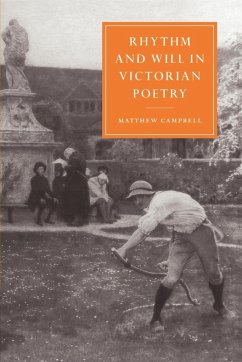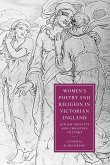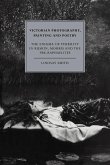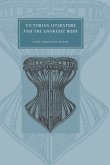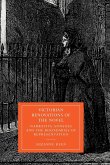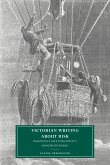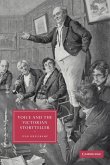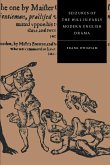Exploration of concepts of human will in the poetry of Tennyson, Browning, Hopkins and Hardy.
In Rhythm and Will in Victorian Poetry, Matthew Campbell explores the work of four Victorian poets - Tennyson, Browning, Hopkins and Hardy - as they show a consistent and innovative concern with questions of human agency and will. The Victorians saw the virtues attendant upon a strong will as central to themselves and to their culture, and Victorian poetry strove to find an aesthetic form to represent this sense of the human will. Through close study of the metre, rhyme and rhythm of a wide range of poems - including monologue, lyric and elegy - Campbell reveals how closely technical questions of poetics are related, in the work of these poets, to issues of psychology, ethics and social change. He goes on to discuss more general questions of poetics, and the implications of the achievement of the Victorian poets in a wider context, from Milton through Romanticism and into contemporary critical debate.
Table of content:
1. Two decisions; Part I. Rhythm and Will: 2. 'Will' and rhythm; 3. Tennyson, Browning and the absorbing soul; Part II. Monologue and Monodrama: 4. Browning and the element of action; 5. 'Tis well that I should bluster': Tennyson's monologues; Part III. Making a Will: 6. The drift of In Memoriam; 7. Incarnating elegy in The Wreck of the Deutschland; 8. The mere continuator: Thomas Hardy and the end of elegy.
Hinweis: Dieser Artikel kann nur an eine deutsche Lieferadresse ausgeliefert werden.
In Rhythm and Will in Victorian Poetry, Matthew Campbell explores the work of four Victorian poets - Tennyson, Browning, Hopkins and Hardy - as they show a consistent and innovative concern with questions of human agency and will. The Victorians saw the virtues attendant upon a strong will as central to themselves and to their culture, and Victorian poetry strove to find an aesthetic form to represent this sense of the human will. Through close study of the metre, rhyme and rhythm of a wide range of poems - including monologue, lyric and elegy - Campbell reveals how closely technical questions of poetics are related, in the work of these poets, to issues of psychology, ethics and social change. He goes on to discuss more general questions of poetics, and the implications of the achievement of the Victorian poets in a wider context, from Milton through Romanticism and into contemporary critical debate.
Table of content:
1. Two decisions; Part I. Rhythm and Will: 2. 'Will' and rhythm; 3. Tennyson, Browning and the absorbing soul; Part II. Monologue and Monodrama: 4. Browning and the element of action; 5. 'Tis well that I should bluster': Tennyson's monologues; Part III. Making a Will: 6. The drift of In Memoriam; 7. Incarnating elegy in The Wreck of the Deutschland; 8. The mere continuator: Thomas Hardy and the end of elegy.
Hinweis: Dieser Artikel kann nur an eine deutsche Lieferadresse ausgeliefert werden.

